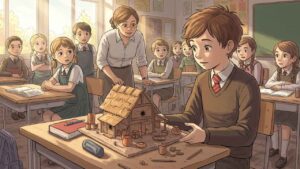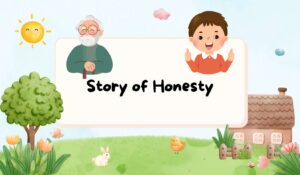Short Story in English with Moral- Short stories have a timeless attraction, enthralling readers with their concise yet powerful narratives. They are literary treasures that condense entire worlds, emotions, and experiences into a small space.
These stories emerge within a few pages, like a snapshot of Life, engulfing us in emotions, experiences, riddles, and profound discoveries. From Aesop’s fascinating fables to contemporary authors’ riveting stories, the art of producing a compelling short story has persisted through generations, leaving an unmistakable impression on the literary world.
In this blog, we’ll look into the engaging world of English short stories, examining their allure, diversity, and ongoing relevance in the literary world. Join me on this writing journey as we discover the magic woven into these short but powerful stories.
Short story in English
Here is the highest number of searches for short story in English that we have written down, though it is an old story but it teaches us a lot. Start Reading and implement the moral in your daily life.
1. “The Tortoise and the Hare”
Once upon a time, in a lush green forest, there lived a boastful hare and a humble tortoise. The hare, confident in his speed, often ridiculed the slow-paced tortoise. Tired of the hare’s taunts, the tortoise challenged him to a race. The hare, feeling overly confident, readily accepted.

As the race commenced, the hare sprinted ahead, leaving the tortoise far behind. Seeing how far he was ahead, the hare decided to take a nap, underestimating the tortoise’s determination. Meanwhile, the tortoise plodded along steadily, never losing sight of the goal.
When the hare woke up, he saw the tortoise near the finish line. He rushed as fast as he could, but it was too late. The tortoise had won the race.
The moral of this story is that slow and steady wins the race. Consistency and perseverance triumph over overconfidence and haste. It teaches us the value of determination and not underestimating others based on appearances or abilities.
“Slow and steady wins the race.” – Aesop
2. “The Lion and the Mouse”
In the heart of the jungle, a mighty lion lived, feared by all creatures. One day, a tiny mouse accidentally disturbed the lion’s sleep. Annoyed, the lion caught the mouse in his paw, ready to devour it. However, the mouse pleaded for mercy, promising to repay the lion’s kindness if spared.

The lion, amused by the idea, let the mouse go. Months later, the lion found himself ensnared in a hunter’s net. Roaring for help, he caught the attention of the mouse. Remembering the lion’s mercy, the mouse hurried to gnaw through the net, setting the lion free.
The moral of this story is that kindness, regardless of size or stature, can lead to unexpected rewards. It emphasizes the significance of helping others, as one day, the favour may be returned when least expected.
“No act of kindness, no matter how small, is ever wasted.” – Aesop
3. “The Boy Who Cried Wolf”
In a quaint village, a mischievous boy tended the village sheep. Seeking attention, he would often shout, “Wolf! Wolf!” to trick the villagers into believing a wolf was attacking the flock. Each time, the villagers rushed to his aid, only to find it was a false alarm.

One day, a real wolf appeared, threatening the sheep. The boy, genuinely scared, cried for help, but this time, no one believed him. The villagers, tired of his deceit, ignored his pleas, and the wolf devoured the sheep.
The moral of this story is that dishonesty leads to a loss of credibility. It teaches us the importance of truthfulness and the consequences of repeatedly lying, as it can result in people not believing us when we genuinely need help.
Moral short story in English
A moral short story in English imparts valuable lessons through a concise narrative, guiding readers to reflect on ethical principles and make positive choices in life.
4. “The Three Little Pigs”
Once upon a time, three little pigs set out to build their houses. The first pig hastily built a house of straw, while the second pig constructed a house of sticks. They both wanted more time to play and relax.

The third pig, however, worked hard and built a sturdy house of bricks, investing time and effort into its construction. Soon after, a big bad wolf came around, huffing and puffing, intending to blow down their houses.
The houses made of straw and sticks quickly collapsed under the wolf’s breath, leaving the first and second pigs in distress. Yet, the wolf couldn’t destroy the third pig’s brick house, and the pigs sought refuge there.
The moral of this story is that hard work, perseverance, and planning ahead pay off in the long run. It emphasizes the importance of diligence and foresight in facing challenges, as quick and careless decisions might not withstand adversity.
“The difference between success and failure is often preparation.” – Bobby Knight
5. “The Ant and the Grasshopper”
During the warm months, a busy Ant worked tirelessly, storing food for the upcoming winter. Meanwhile, a carefree grasshopper spent its time singing and enjoying the sunny days, neglecting to prepare for the colder season.

As winter arrived, the ant stayed warm and well-fed in its cosy home with an abundance of food. The grasshopper, however, found itself hungry and cold, regretting its lack of preparation.
Approaching the ant for help, the grasshopper asked for food. The ant, understanding the consequence of laziness, reminded the grasshopper of its summer folly. The grasshopper learned its lesson and vowed to be more responsible in the future.
The moral of this story is that hard work and preparation in advance are vital for future success. It highlights the importance of diligence and responsibility, as well as the consequences of procrastination.
“Prepare today for the needs of tomorrow.” – Bobby Knight
6. “The Goose That Laid the Golden Eggs”
Once, a poor farmer owned a goose that laid one golden egg every day. Excited by his newfound wealth, the farmer became greedy and impatient, thinking there must be a treasure inside the goose.

Unable to wait for daily riches, the farmer decided to cut open the goose to get all the golden eggs at once. To his dismay, he found nothing inside the goose but its usual innards. The farmer lost the goose and any hope of receiving more golden eggs.
The moral of this story is that greed leads to loss. It teaches us the importance of patience, contentment, and not sacrificing long-term gains for immediate rewards. Greed can blind us to the value of what we already possess, leading to irreversible losses.
“Too much greed leads to great loss.” – Aesop
Short story in English with Moral
A brief Short story in English with Moral lesson, designed to entertain and enlighten readers by conveying a meaningful message through storytelling.
7. “The Dog and Its Reflection”
Once, a dog roamed the streets carrying a stolen piece of meat in its mouth. As the dog crossed a bridge over a river, it noticed its reflection in the water. Thinking it was another dog with a larger piece of meat, it greedily barked and snarled at the image, hoping to claim the larger prize.

In the process of barking, the dog dropped its piece of meat into the river. To its dismay, the reflection disappeared, and the dog realized its mistake. It lost both the stolen meat and the piece it originally possessed.
The moral of this story is that greed often leads to loss. It teaches us to appreciate what we have rather than being envious of others’ possessions. Sometimes, the pursuit of more can cause us to lose what we already possess.
“Often, what we perceive is not always the reality.” – Aesop
8. “The Farmer and the Snake”
One winter, a farmer found a frozen snake lying stiff on the ground. Taking pity on the snake, the farmer brought it home, warmed it by the fire, and revived it. As the snake regained its strength, it bit the farmer, injecting venom into him.

As the farmer lay dying, he asked the snake why it bit him after he had shown kindness. The snake replied, “You knew I was a snake when you took me in.” With these words, the farmer understood that the snake’s nature hadn’t changed despite his kindness.
The moral of this story is that some creatures or people may not change their nature, no matter how much kindness they receive. It’s essential to be cautious and aware of the inherent nature of others, even when showing them compassion.
“Some beings will never change their nature, no matter how much kindness they receive.” – Aesop
9. “The Boy and the Starfish”
On a beach, a young boy spent his days throwing stranded starfish back into the ocean. A passerby, noticing the vast number of beached starfish, remarked, “There are so many, your efforts won’t make a difference.”

Undeterred, the boy picked up another starfish and threw it into the sea, saying, “It made a difference for that one.”
The moral of this story is that every small act of kindness matters, no matter how insignificant it may seem in the grand scheme of things. It teaches us the importance of making a difference, even if it’s for just one individual, as every effort counts in helping others.
“Making a difference for just one can create a ripple effect of change.” – Loren Eiseley
Short Short story in English
10. “The Old Man and His Sons”
An old man lived with his quarrelsome sons who were always at odds with each other. Wanting to teach them a valuable lesson, he asked each son to bring a bundle of sticks. Once they gathered, he instructed them to break the bundle individually. Each son did so with ease.

Then, the old man tied all the sticks into one large bundle and asked his sons to break it. No matter how hard they tried, none could break the bundle.
The old man smiled and explained that unity is strength. Individually, they were fragile and could be broken easily, but together, as a united force, they were unbreakable.
The moral of this story is that unity is strength. When people come together and work as a team, they can overcome obstacles that might be insurmountable when faced alone.
“Unity is strength, where together we are unbreakable.”
11. “The Oak Tree and the Reeds”
An oak tree stood proudly by a riverbank, boasting about its strength and resilience to the slender reeds swaying in the wind nearby. The reeds, bending gracefully with the wind, listened silently.

Suddenly, a fierce storm swept through, with powerful winds lashing against the oak tree. The tree resisted, standing firm against the gale. However, its rigid structure caused it to crack and fall.
The reeds, flexible and adaptable, bent with the wind and survived the storm without harm.
The moral of this story is that flexibility and adaptability are essential traits. Being rigid and inflexible can lead to failure while being adaptable allows one to withstand challenges and emerge stronger.
“Flexibility and adaptability are essential for survival.”
12. “The Crow and the Pitcher”
In a scorching summer, a thirsty crow searched for water but found only a pitcher with very little water at the bottom. The crow tried to reach the water but couldn’t as the level was too low.

Thinking quickly, the crow began dropping pebbles into the pitcher, one by one. As more pebbles filled the pitcher, the water level gradually rose, allowing the crow to drink and quench its thirst.
The moral of this story is that intelligence and resourcefulness can overcome seemingly impossible situations. It teaches us the value of creativity and problem-solving, showing that even small efforts can lead to significant results.
“Cleverness and resourcefulness overcome seemingly impossible situations.”
Small short story in English
13. “The Miser and His Gold”
There was a miser who owned a large sum of gold coins. He spent his days counting and admiring his wealth, rarely using it for anything else. He buried his gold deep underground, constantly worried about losing it.

One night, the miser dreamt that thieves had stolen all his gold. Distressed, he woke up and rushed to check on his treasure. Relieved to find it safe, he decided to count the coins once more. While doing so, he collapsed and passed away.
The villagers, discovering his obsession with the gold, couldn’t help but feel sorry for him. They realized he died without ever truly enjoying the wealth he had accumulated.
The moral of this story is that wealth is of no use if it isn’t utilized or enjoyed. It’s important to find a balance between saving and enjoying life, as hoarding riches without experiencing the joys they can bring may lead to a life wasted.
“Wealth unused might as well not exist.” – Aesop
14. “The Two Frogs”
In a peaceful pond, two frogs lived happily until they noticed that the pond was drying up. Determined to find a solution, they hopped to a nearby well-known for its depth.
Upon peering inside, they realized it was too deep for them to leap out. The first frog, feeling disheartened, gave up and resigned itself to fate, saying it was impossible to escape.
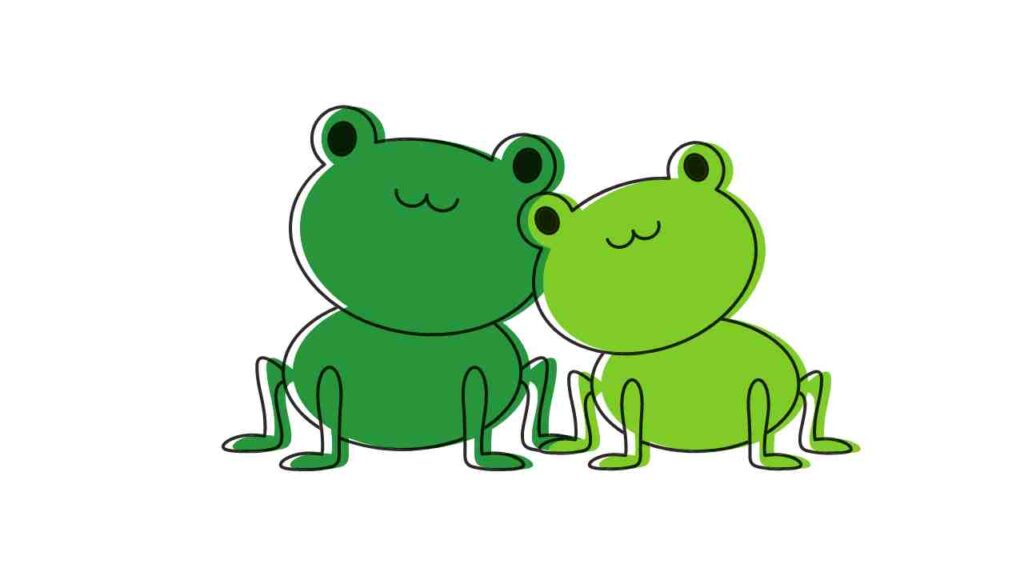
The second frog, however, continued trying and jumping with all its might. Despite the onlookers saying it was futile, the frog persisted. Eventually, with a mighty leap, it managed to escape the well.
The moral of this story is that persistence and determination can lead to success. Even when faced with seemingly impossible situations, continuing to strive for a solution can eventually yield positive results.
“Sometimes what seems like a setback can lead to unexpected benefits.” – Unknown
15. “The Emperor’s New Clothes”
In a kingdom, two cunning weavers promised the emperor a new suit of clothes that would be invisible to anyone unfit for their position or stupid. The emperor, not wanting to appear unfit or foolish, agreed to wear the clothes.
The weavers pretended to weave cloth on empty looms, and the emperor pretended to admire the non-existent fabric. Advisers and citizens, not wanting to appear incompetent, praised the imaginary clothes.
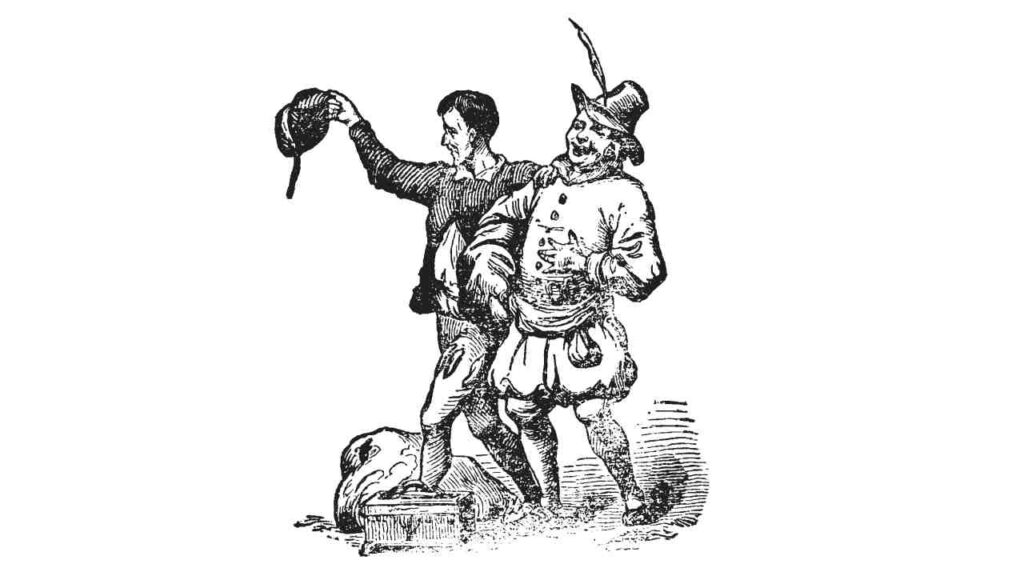
During a grand parade, a child exclaimed, “The emperor is naked!” This truth spread, and everyone realized they had been fooled. The emperor felt embarrassed but continued the parade, pretending nothing was amiss.
The moral of this story is that speaking the truth, even if uncomfortable, is essential. It highlights the importance of honesty and the dangers of blind conformity and deceit, even when it involves those in power.
“Speaking the truth is essential, even when it involves those in power.”
Simple short story in English
16. “The Moon and Her Mother”
A young girl noticed that the moon seemed to follow her as she walked outside at night. Frightened by this, she ran back home and sought comfort from her mother.
The girl asked her mother why the moon was chasing her. The mother smiled and explained that the moon wasn’t chasing her but merely following her as she walked. She then handed her daughter a mirror and asked her to hold it up towards the moon.

Looking at the reflection of the moon in the mirror, the mother said, “Now you can see that the moon is following you just as much as it’s following everyone else. It’s not about being chased; it’s about being accompanied.”
The moral of this story is that sometimes our fears and perceptions are unfounded. What might seem scary or troubling might just be a different perspective of something benign. It’s important to look at things from different angles before concluding.
“Things are not always as scary as they seem; a different perspective can change everything.” – Unknown
17. “The Farmer and His Horse”
In a village, there was a farmer whose horse ran away. The villagers, sympathizing with his misfortune, said, “What bad luck!” The farmer simply replied, “Good luck, bad luck, who knows?”
A few days later, the horse returned, accompanied by a group of wild horses. The villagers exclaimed, “How fortunate!” The farmer calmly responded, “Good fortune, bad fortune, who knows?”
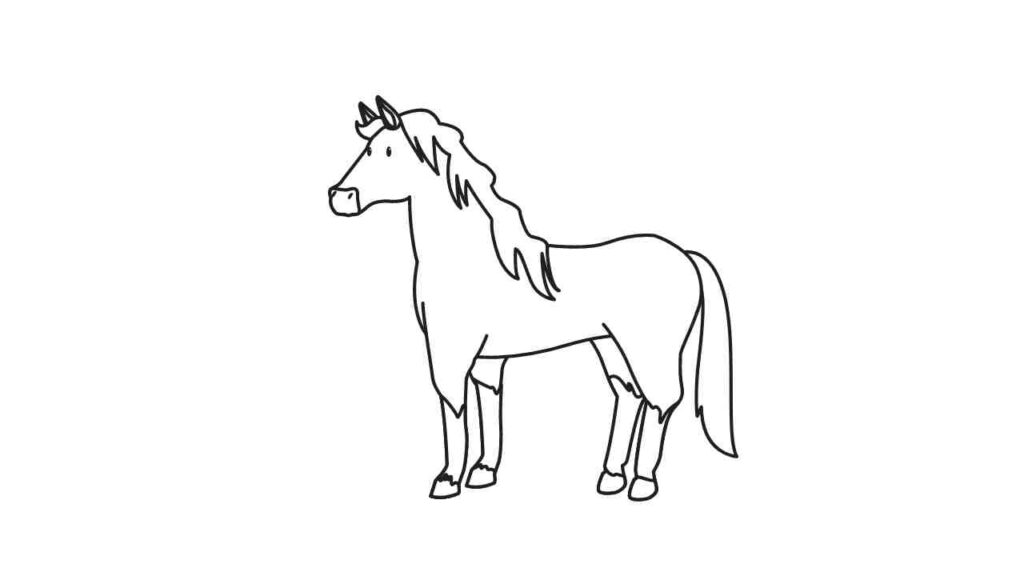
While trying to tame one of the wild horses, the farmer’s son fell and broke his leg. Again, the villagers commented, “What a tragedy!” The farmer replied, “Good tragedy, bad tragedy, who knows?”
Soon after, the army came to recruit young men for war, but the farmer’s son was exempted due to his injury. The villagers proclaimed, “How fortunate your son couldn’t go to war!” And once again, the farmer said, “Good fortune, bad fortune, who knows?”
The moral of this story is that life’s events are often unpredictable, and what seems like misfortune might lead to unforeseen benefits. It teaches us the importance of accepting life’s ups and downs with equanimity, as things might not always be as they seem.
18. “The Wise Owl”
In a dense forest, an old, wise owl perched atop a tall tree, revered for its knowledge and insight. Animals from all around sought its advice on various matters.
One day, a squirrel approached the owl, seeking advice on how to gather enough nuts for the winter. The owl suggested the squirrel work tirelessly, gathering and storing as many nuts as possible before the winter arrived.
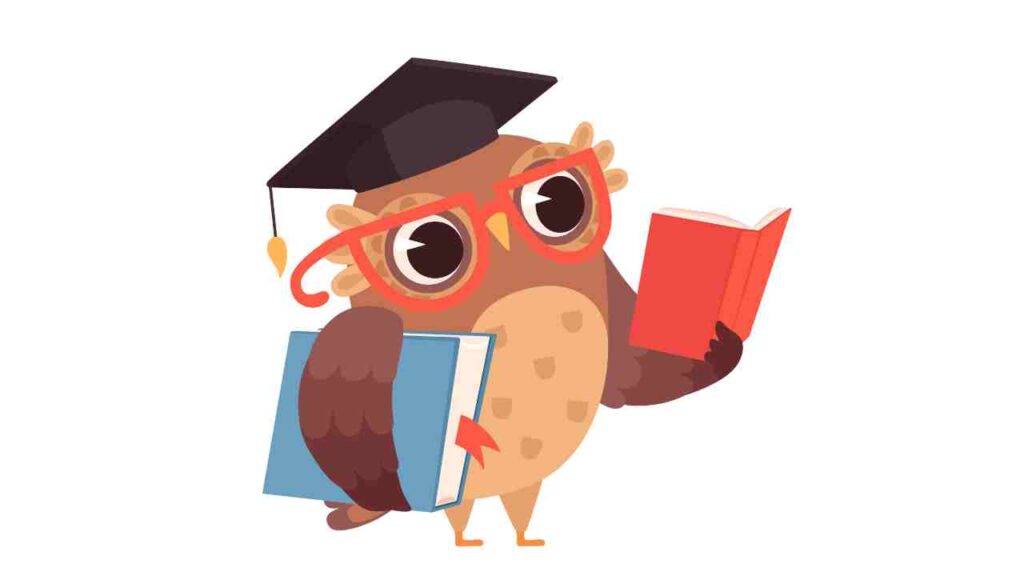
However, when the rabbit asked the same question, the owl advised him to enjoy the present moments and not worry excessively about the future.
Confused by the contradictory advice, a young fox asked the owl why it gave different guidance to different animals. The owl smiled and explained that each creature had different needs, abilities, and circumstances. What worked for one might not work for another, and it’s crucial to tailor advice to fit the situation.
The moral of this story is that advice should be given based on understanding individual circumstances. What may be suitable for one person or situation might not apply to another. It’s important to consider individual differences when offering guidance.
“Advice tailored to the situation is more valuable than generic advice.” – Unknown
Very short story in English
19. “The Fox and the Grapes”
A hungry fox spotted a vine heavy with ripe grapes hanging above him. Desiring to taste them, the fox leapt and jumped but couldn’t reach the grapes. After several failed attempts, the fox gave up, exclaiming, “The grapes are probably sour anyway!”
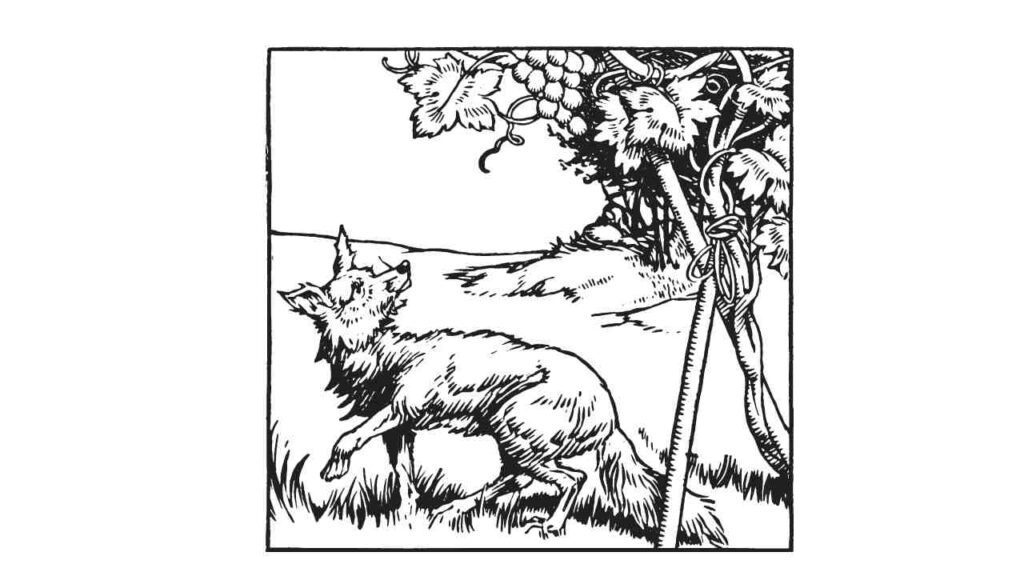
The fox walked away, convincing himself that the grapes were not worth his effort and were likely unappetizing.
The moral of this story is that sometimes when we can’t attain something, we tend to disparage it out of frustration. It teaches us that belittling what we can’t achieve or acquire is a way of comforting ourselves for our failure.
“It is easy to despise what you cannot get.” – Aesop
20. “The Boy and the Apple Tree”
A young boy loved playing near an apple tree in his village. He spent his childhood climbing the tree, swinging from its branches, and eating its delicious apples. As the boy grew older, he began visiting the tree less frequently.
Years passed, and the boy turned into a man, busy with life’s responsibilities. One day, he passed by the old apple tree and noticed it was withered and unfruitful.
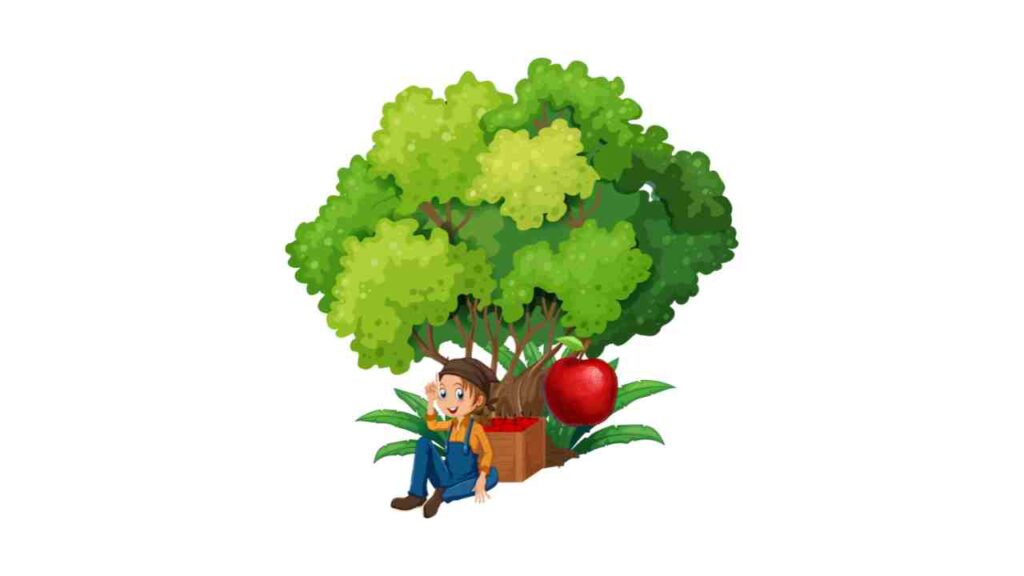
Feeling guilty for neglecting his once-beloved tree, the man sat beneath it, reminiscing about his carefree days. The tree whispered, “You’re back, my dear friend.”
Regretfully, the man apologized, saying he had forgotten the joy the tree had brought him. The tree forgave him, reminding him that happiness comes from cherishing the simple joys in life.
The moral of this story is that we should appreciate the people and things that bring us joy before it’s too late. It emphasizes the importance of gratitude and not taking things for granted.
“Appreciate the present joys before they become past regrets.”
Short story in English for students
21. “The Fisherman and the Businessman”
On a beautiful beach, a fisherman sat peacefully, content with his day’s catch. A wealthy businessman passing by noticed the fisherman and struck up a conversation.

The businessman asked the fisherman why he didn’t work harder and catch more fish to sell, which could lead to more money. The fisherman calmly explained that he caught enough to sustain his family’s needs.
The businessman, puzzled, asked, “What do you do with the rest of your time?” The fisherman replied, “I spend time with my family, relax, fish a little more, and enjoy the sunset.”
The businessman then offered advice, “You should work harder, catch more fish, expand your business, and buy a bigger boat.” The fisherman asked, “What would I do with a bigger boat?” The businessman replied, “Then you could catch even more fish, make more money, and retire comfortably.”
The fisherman smiled and said, “But sir, I’m already doing what makes me happy.”
The moral of this story is that happiness doesn’t always come from wealth or working harder. Sometimes, contentment lies in simplicity and enjoying life’s simple pleasures.
“Happiness often resides in simplicity rather than wealth or hard work.” – Unknown
22. “The Elephant Rope”
A man visited an elephant camp and was amazed that these massive creatures were tethered by a small rope tied to one leg. Confused, the man asked the trainer why these powerful animals didn’t break free from such a flimsy restraint.
The trainer explained that when the elephants were young, they were tied with the same rope. At that age, they struggled to break free but couldn’t. Over time, they conditioned themselves to believe they couldn’t escape, so as adults, they never tried.

The man was astonished by the elephants’ mental conditioning, despite their physical strength.
The moral of this story is that limiting beliefs and conditioned thinking can hold us back from reaching our full potential. Often, what holds us back is not our capabilities but our mindset and beliefs.
“Your beliefs shape your reality; break free from limiting thoughts.” – Unknown



